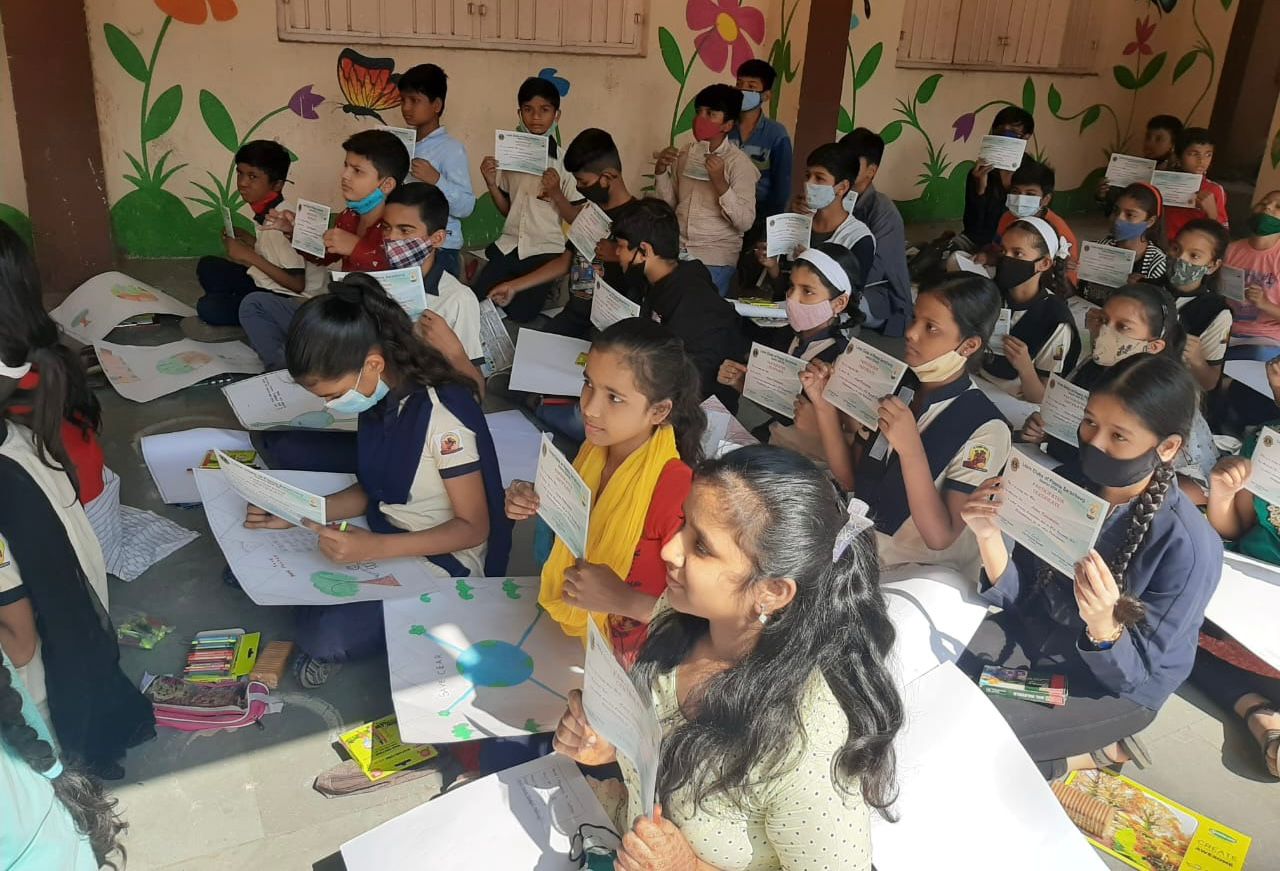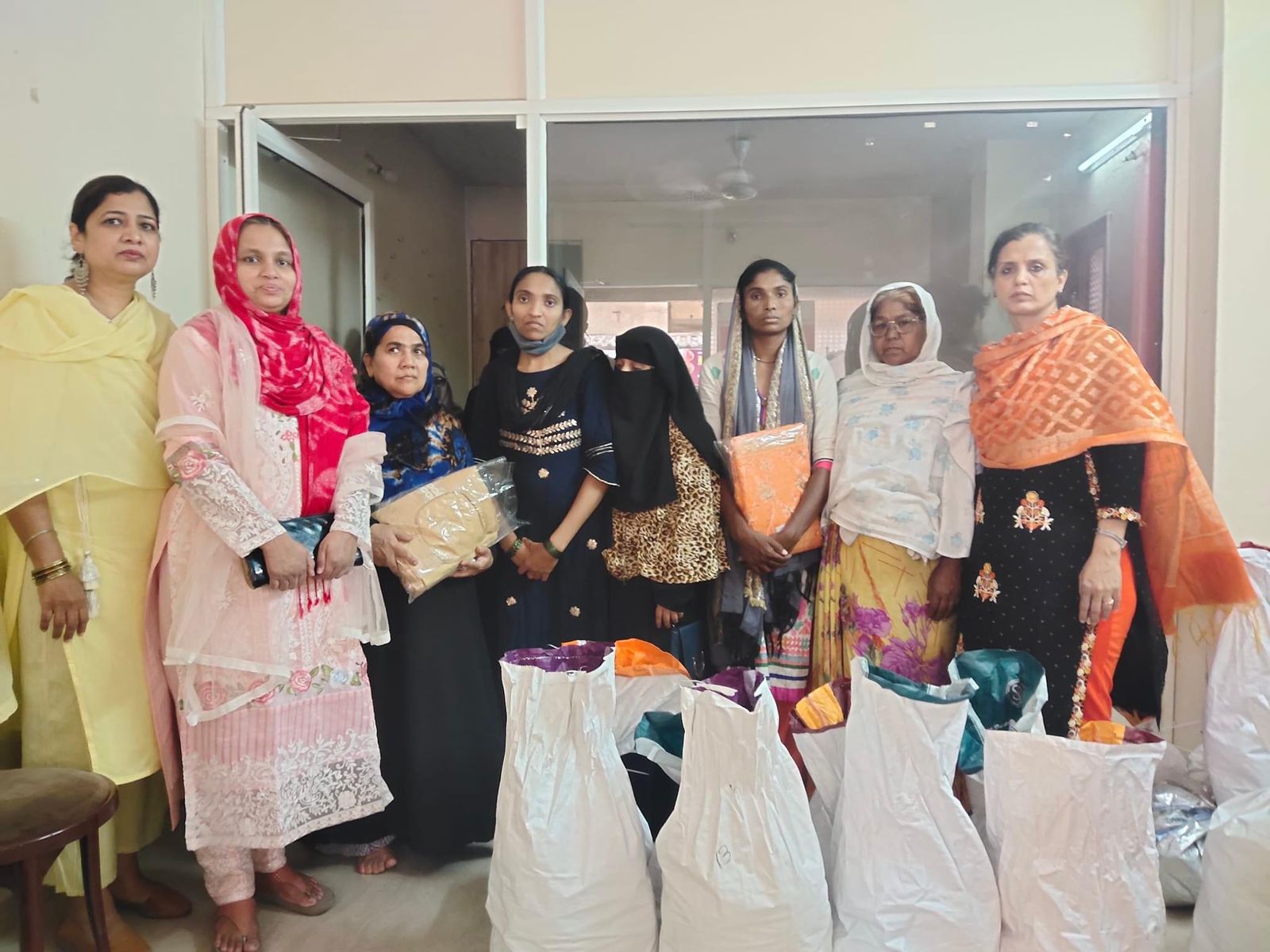.webp)
Bhakti Chalak/Pune
Samina Shaikh and Shabana Contractor studied together while living in the Muslim neighbourhood of Kondhwa, a Muslim-dominated area of Pune, the cybercity of Maharashtra. On realising the poor educational indices of the Muslims in India, both decided to improve the situation for their community.
Samina and Shabana set up their organisation - Future Foundation - in 2016 with the sole aim of motivating Muslim children to attend school.
Both friends first surveyed the Muslim community and realized that students are unable to study due to difficult conditions at home. This, they found out, was also the reason behind the high dropout rate.
Samina Shaikh says, "We met students and parents in areas around Kondhwa. After talking to them, we understood the basic reason behind students dropping out of school.
"Due to lack of financial support, many had to drop out of school. As an immediate measure, we not only helped the students academically but also focused on how to empower their parents financially."
Sameena says lack of financial stability is hampering a lot of parents from sending their children to schools. She says, “Many parents of Muslim children do not have permanent employment."
 A School run by Future Foundation in Pune
A School run by Future Foundation in Pune
Due to this, there is constant economic instability in many families. To deal with this, children also start working from the early stages of their lives. That is also the reason why there are more Muslim children in the labour force than others.
Their Foundations offers job opportunities to Muslim women so that they can send their children to school.
Often the financial responsibility of the family falls on the husband. If women also become earning members, financial stability will automatically come into the family.
Sameena says that if the woman in the family is capable she can take care of everyone and it turns around the conditions of the family.
Keeping this in mind, Samina and Shabana worked to create employment for Muslim women. In most places, it was challenging to get Muslim women out of their homes but gradually Sammena and Shabana overcame this difficulty.
Most middle-aged Muslim women are not educated. Sabeena and Sbahana face the issue of how to make them employable.
 Women beneficieries of Future Foundation's assitance
Women beneficieries of Future Foundation's assitance
Future Foundation found a solution to this. It directed them to pick jobs as household help, cottage industry, sewing, and security women in the nearby areas. Soon many uneducated women were employed.
However, the duo found a few families who were too poor to send children to school. The foundation provided them a monthly financial assistance.
Future Foundation also focuses on Muslim women who face domestic violence and have no support system. In the absence of financial support and shelter, these women have to depend on their abusers and in the process face more abuse and violence.
Only after the situation goes out of control, a woman leaves her home as a last resort.
In such a situation, he becomes the caretaker of her children too while she has no place to go and live. In such crises, a woman needs a safe shelter.
Keeping this in mind, Future Foundation has also set up facilities of free shelter for such women. Women escaping their abusive partners with their children are offered a place to live till their children complete their education.
Future Foundation is trying to ensure that the youth of Muslim community get higher education and the doors of foreign education should be opened for them.
The Foundation also organises awareness drives and camps to ensure that scholarships for the minority community are available to the needy. Besides, it also organises training camps to keep the youth updated about new skills in the industry.
Through the Future Foundation, Samina and Shabana are taking active steps to address a major issue facing the Muslim community. They believe that all barriers to education can be overcome through financial empowerment.
